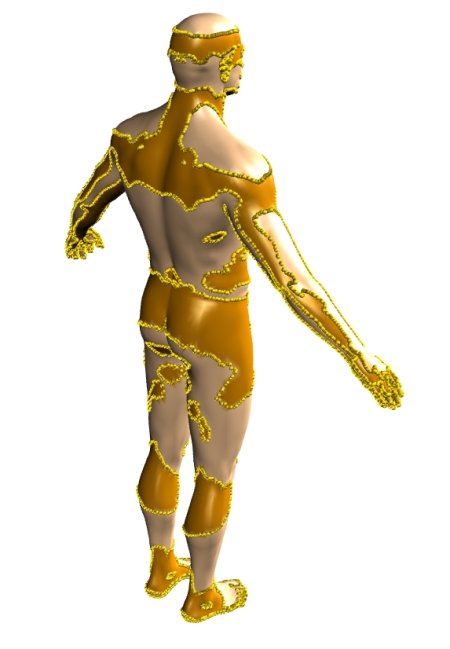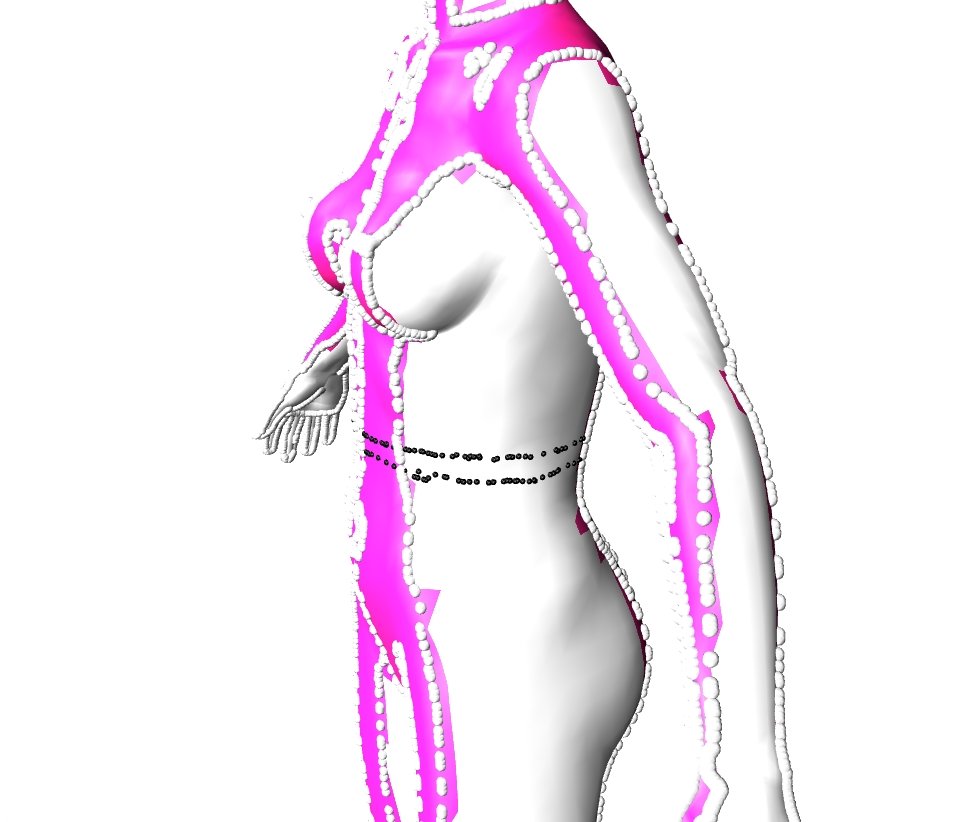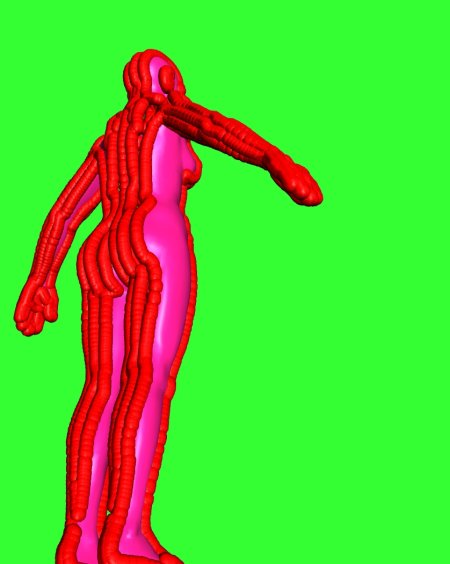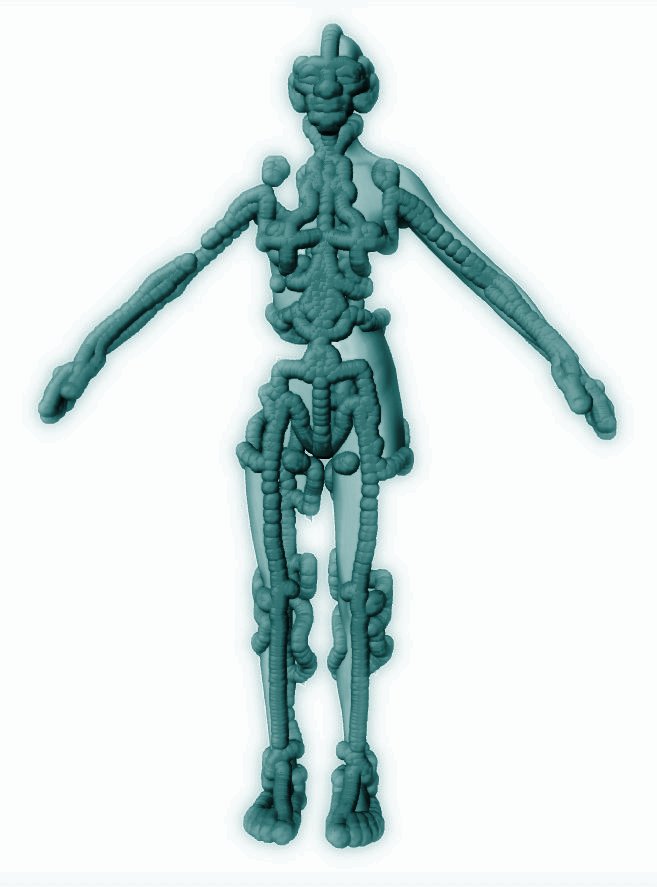adapting and organizing

I just found this link about the upcoming meeting on Self-Adaptive and Self-Organizing Systems, which will soon take place in Boston.
One interesting speaker will be Radhika Nagpal from the Self-Organizing Systems Research who will talk about Global-to-Local Programming: Design and Analysis for Amorphous Computers. Among others Radhika Nagpal e.g. beautifully used mathematical Origami folding rules in her Ph.D. thesis in order to create a global shape via local rules and few boundary assumptions.
(For the mathematicians a rough interpretation: If I understood correctly (?) the Origami rules are assigned to the vertices of a graph which is immersed in the plane. The vertex positions and combinatorics (cell-to-cell contact) and two tags called orientation and surface (inner/outer skin) is changing according to the local folding rules (i.e. which are depending on the state of the neighbours) and a global variable which one could call “approximate position” of the vertex, since it is given by kind of randomized distance to the boundary).
Radhika Nagpals interest lies in understanding biological processes and she seems to have an inclination to genetical engineering – at least her site is linking to the IGEM team of the IGEM.
-> watch the selforganized sandman in the spider man 3 trailer (unfortunately he has only a very short appearance in the trailer) which is nicely rendered and modeled -although I found that he sometimes looks a bit like sand sticking to a fallen down ice cream ball.
-> an art project investigating self organization: the new ecology of things
-> a DIY kit which may in the future allow housewifes to make home made monsters at sunspotworld



October 3rd, 2021 at 9:34 am
Did you ever finish your project?